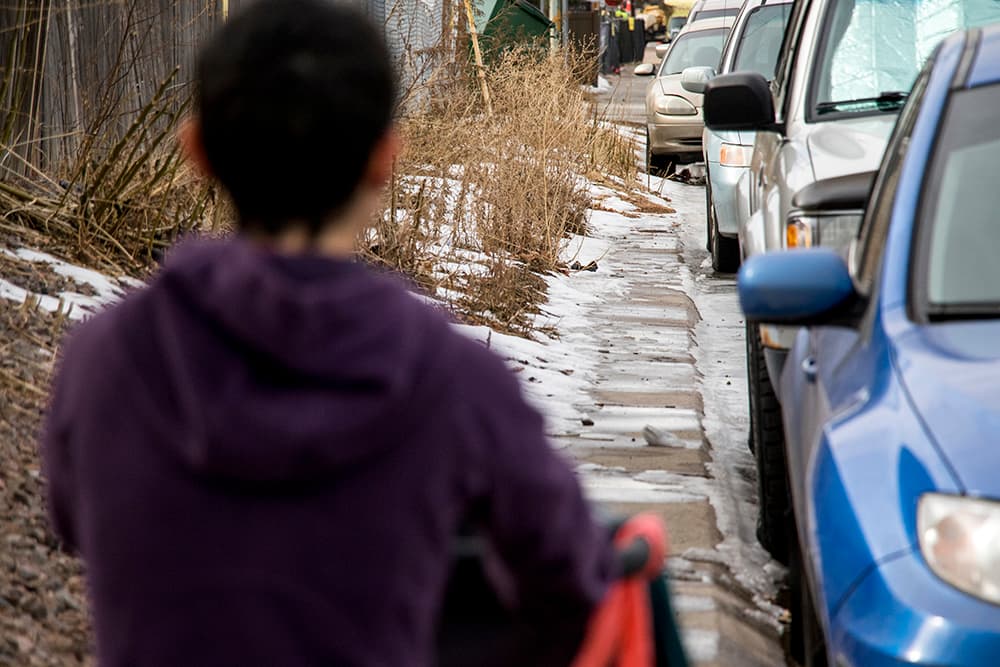An hour after she gave it, Jackie Youngblood would forget how her testimony in front of the Denver City Council's Sidewalk Working Group went on Monday. The West Highland resident's memory has been spotty ever since she slipped on a sidewalk, fell, and suffered a brain injury.
"I'm glad you're working on sidewalks," Youngblood told the committee. "They're dangerous."
Sidewalks are part of the public right of way, like roads. Unlike roads, the city has no dedicated, annual funding for them. That could change. Council will look at a new revenue stream to chase.
"We've got a billboard that says we love our refugees, and we do, but we can't put that same billboard up for our mobility challenged community and really mean that we're taking robust action and welcoming them," said City Councilman Paul Kashmann during the first meeting of the Sidewalk Working Group since spring.
Kashmann, who chairs the group, called the funding need "breathtaking." Ten percent of city streets are missing sidewalks, while 30 percent have slim and crumbling walkways, according to the city's draft Pedestrian and Trails plan. It would take 440 years at 2017 funding levels to complete the grid.
The group's next step is to explore what's passable.
City Council members will consider the cost of completing Denver's pedestrian network -- $1.3 billion, according to the city's draft Pedestrian and Trails plan -- and how well city voters might respond to a tax. A fee would not require a vote of the people.
"I think a fee for sidewalks is a totally fine place to start, and if that's where the will of this City Council is, then I think we should spend some energy really sitting down and having that conversation," said City Councilwoman Robin Kniech.
A tax (that would likely include other things like bikes or transit) or a third, unidentified option is also possible, she added.
Kniech compared the push for sidewalk funding to the push for affordable housing -- another fundamental need that the city did not historically fund ... until it did. First comes the political battle over whether it's the local government's responsibility, she said, then a funding strategy.
Unlike roads, sidewalks don't exist everywhere.
And where they do, the city government expects property owners to repair them and clear them of snow, leading to dangerous conditions for everyone.
The Denver City Council decided to start enforcing the city's broken sidewalk ordinance last year (with a new fund to help people pay for them if they need it), after advocates for pedestrians and wheelchair users pushed hard. The Hancock administration gave $4 million to the sidewalk cause, while Denver voters approved $48 million for sidewalks in 2017 (with $17 million reserved for Globeville, Elyria, and Swansea).
And it's not even enough.
"In the past two and a half years we have indeed made progress," said WalkDenver Executive Director Jill Locantore. "We have also seen a growing consensus over the past two and a half years that the city should manage and fund sidewalks just like other transportation -- like streets, like bike lanes. Imagine if 40 percent of our streets were unpaved roads."
Kashmann said he'd like to have a funding proposal on the table by mid-2019.












